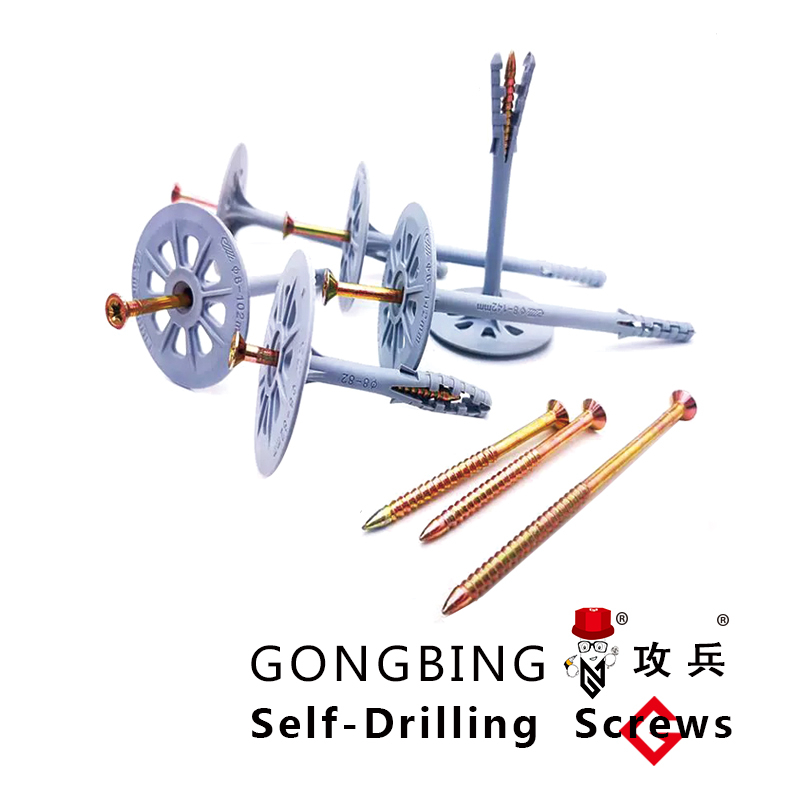concrete expansion bolt
Understanding Concrete Expansion Bolts A Comprehensive Guide
Concrete expansion bolts are essential fasteners widely used in construction and masonry applications. These versatile anchoring devices offer reliable support for various fixtures, from shelves and cabinets to heavy machinery and safety rails. This article provides an in-depth look at concrete expansion bolts, their types, installation methods, advantages, and applications.
What Are Concrete Expansion Bolts?
Concrete expansion bolts, often referred to as expansion anchors, are designed to secure objects to concrete walls or floors. They function by expanding within the concrete when the bolt is tightened, creating a strong grip that holds the fastener securely in place. This mechanism ensures that the load is distributed evenly across the anchor, enhancing its stability and durability.
Types of Concrete Expansion Bolts
There are several types of concrete expansion bolts, each tailored to specific applications
1. Wedge Anchors These are among the most common types of expansion bolts. Made from carbon steel or stainless steel, they consist of a bolt with a wedge-shaped end. As the bolt is tightened, the wedge lifts and expands the anchor against the inner walls of the pre-drilled hole, creating a strong hold.
2. Sleeve Anchors Sleeve anchors are versatile and can be used in both solid concrete and masonry applications. They feature a metal sleeve that expands when the bolt is tightened, gripping the sides of the drilled hole. They are ideal for medium to heavy loads.
3. Drop-In Anchors These anchors are designed for use in solid concrete. A cylindrical sleeve is inserted into a pre-drilled hole, and a bolt is then dropped into the sleeve, causing it to expand against the sides of the hole when tightened. Drop-in anchors are commonly used for overhead applications due to their flush finish.
4. Concrete Screws Although not traditional expansion bolts, concrete screws are specifically designed to be driven directly into concrete without pre-installation of an anchor. They create their own threads in the concrete, offering a quick and efficient solution for lightweight applications.
Installation Process
Proper installation is crucial for the effectiveness of concrete expansion bolts. Here’s a step-by-step guide
1. Select the Right Anchor Choose the appropriate expansion bolt based on the load requirements and the type of concrete being used.
2. Drill the Hole Use a hammer drill to create a hole in the concrete. Ensure that the diameter and depth of the hole match the specifications of the chosen expansion bolt.
3. Clean the Hole Remove any dust or debris from the drilled hole to ensure a strong bond.
concrete expansion bolt

4. Insert the Anchor Place the expansion bolt into the hole, ensuring it is positioned correctly.
5. Tighten the Bolt Using a wrench, tighten the bolt until the anchor expands and fits snugly against the concrete walls.
6. Check Stability After installation, check the stability of the fixture to ensure it can safely support the intended load.
Advantages of Concrete Expansion Bolts
Concrete expansion bolts offer numerous benefits
- Strength and Reliability They provide a secure hold, suitable for heavy loads, making them ideal for numerous construction applications.
- Ease of Installation Many types are straightforward to install, requiring only basic tools.
- Versatility Available in various shapes and sizes, they can accommodate different anchor requirements.
- Corrosion Resistance Many expansion bolts are made from stainless steel or have protective coatings, ensuring longevity even in harsh environments.
Applications
Concrete expansion bolts are utilized in various sectors, including
- Construction For anchoring heavy structural elements in place. - Home Improvement Ideal for mounting shelves, cabinets, and other fixtures. - Industrial Use Often used to secure machinery and equipment. - Infrastructure Essential for building safety and security installations, such as railings and barriers.
Conclusion
Concrete expansion bolts are indispensable tools in construction and maintenance. Understanding their types, proper installation methods, and applications can enhance safety and efficiency in any project. Whether you are a professional contractor or a DIY enthusiast, mastering the use of concrete expansion bolts can lead to successful and enduring installations.
-
Weatherproof Plastic Expansion Anchors for OutdoorNewsJun.06,2025
-
Sustainability in the Supply Chain: Eco-Friendly TEK Screws ProductionNewsJun.06,2025
-
Load-Bearing Capacity of External Insulation FixingsNewsJun.06,2025
-
Double Head Bolts: Enhancing Efficiency in Industrial MachineryNewsJun.06,2025
-
Corrosion Resistance in Chipboard Screws: Coatings for Wholesale DurabilityNewsJun.06,2025
-
Butterfly Toggle Bolts : Enhancing Structural ResilienceNewsJun.06,2025
